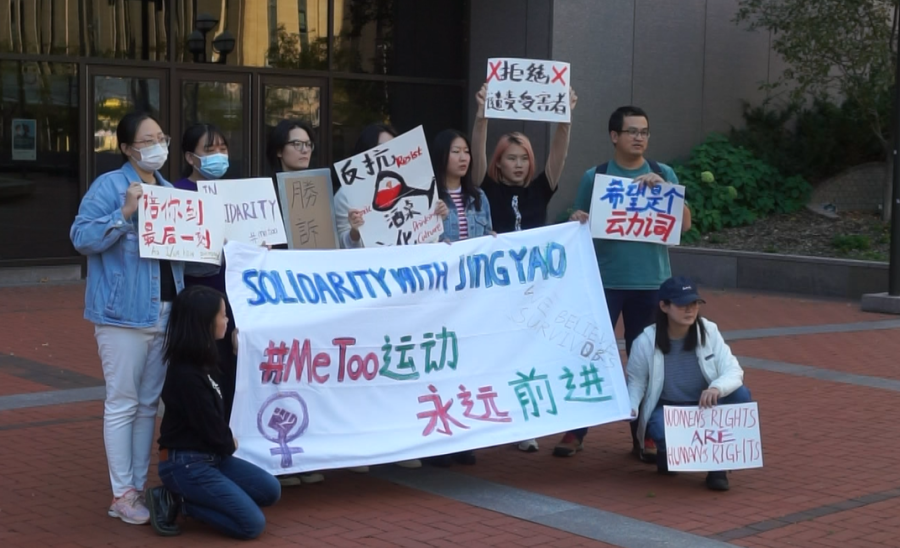Empowerment and persistence against sexual harassment
October 13, 2022
In 2018, Jingyao Liu, a student volunteer at the Univeristy of Minnesota accused the founder and CEO of Chinese company JD.com Richard Liu of rape after an exchange activity at the university.
Due to the lack of the freedom of press and transparency in China, Liu and his team stigmatized the victim, driving Chinese Internet users to condemn Jingyao for sextortion and seduction. In addition, under the censorship from the Ministry of Truth, few voices and protests supporting the victim remained on social media so that activists had trouble transferring the victim’s voice.
More than a billionaire, Richard is one of the most powerful entrepreneurs in China, whose behavior is not bound by the law. Jingyao was also afraid of her parents being threatened, and her friend was hesitant to report to the police.
China has long worshiped a strong masculinity culture, with one key element being workplace drinking culture. This is the most common way of “networking” between leaders and members, and forcing subordinates to drink is a show of power.
What came after was alcohol-related sexual harassment, starting from catcalling and rape jokes, with the coercive behaviors quickly escalating. As a female student volunteer who was at the bottom of the workplace pyramid, Jingyao easily became the target of sexual exploitation.
The Jingyao case finally reached a settlement on Oct. 2, one day before the civil trial began. Despite minor disappointment still existing among activists, they were pleased that everything had come to an end. Although it was the last meeting and the details of the agreement were unknown, some of the activists were still willing to gather in front of the county center to offer their follow-up support.
According to one of the activists, Yaya, putting a girl into situations with workplace drinking is imprudent and reckless. It is concerning that Chinese students studying in the United States are still threatened by toxic masculinity from their country. Colleges and universities which need to “cooperate” with those entrepreneurs in China can barely make any “compromises” to their culture. She also believes that UMN did not provide enough support for the victim in different aspects, either legal or psychological.
Another activist was concerned that Jingyao’s case would be politicized on a larger scale, becoming the only hope for the MeToo activist in China. Since Jingyao has suffered from repeatedly exposing her misery for three years, she should now be protected rather than humiliated in public.
At the same time, activists said that they were not targeting Richard Liu, but wanting to accuse the whole masculinity culture in China.
Universities and colleges should treat Chinese enterprises-related programs and activities with caution. Putting a student at such a place is a misjudgment, but it is also common that the universities and colleges lack awareness of how the hierarchy systems work in China. Abuse of authority and hierarchical communication happens very frequently in China, and universities and colleges should at least avoid inviting senior level guests or bureaucrats in China. At the same time, students should be free from such fear. Students should be encouraged to stand up against such intimidation, or more international students will continue to feel unsafe on American campuses and begin to self-censor and become potential victims.
“It is my duty and my promise to support her,” one of the activists said. “As I said before, I will support her until everything is over.”
Yuki Jiang contributed to the writing of this article.













